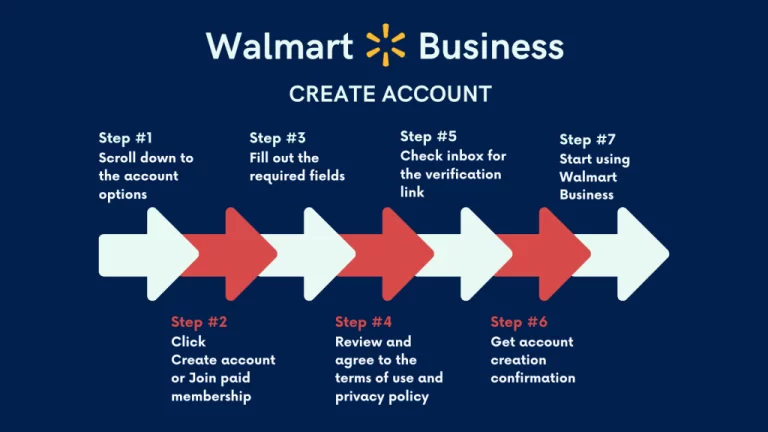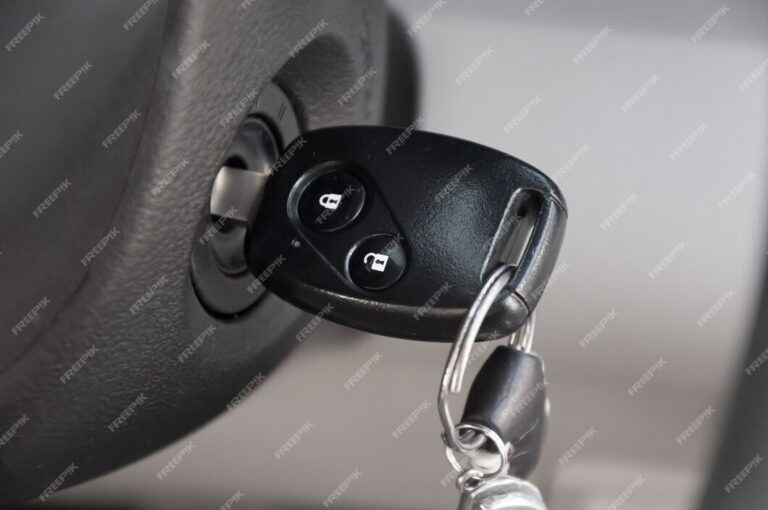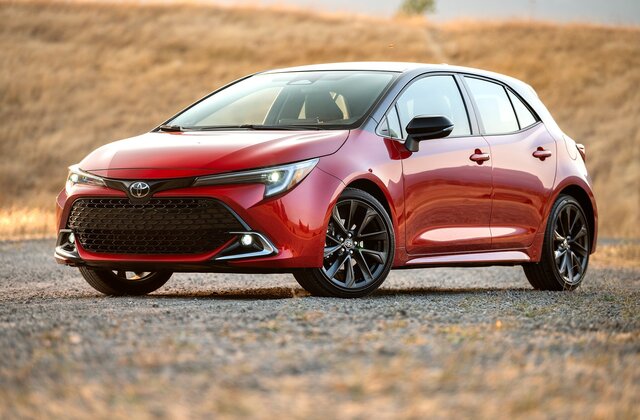V6 vs V8 Engines: Unveiling the Power and Performance Differences
When it comes to choosing an engine for your vehicle, one of the biggest decisions you’ll need to make is whether to opt for a V6 or V8 engine. While both options have their benefits, they also have their differences. The V6 engine is typically more fuel-efficient, while the V8 engine offers more power and performance. But that’s just the tip of the iceberg. There are a lot of factors to consider when choosing between these two engine types, including the size of your vehicle, your driving style, your budget, and more. In this post, we’ll take a closer look at the differences between V6 and V8 engines, so you can make an informed decision on which one is right for you. We’ll explore everything from horsepower and torque to fuel economy and handling, so you can determine which engine best suits your needs.
1. Introduction: The allure of powerful engines
Engines are the heart and soul of any vehicle, and for many enthusiasts, the allure of a powerful engine is undeniable. The V6 and V8 engines are two popular options that have captivated the automotive world with their raw power and exhilarating performance. These engines are known for their ability to deliver an adrenaline-pumping driving experience that leaves a lasting impression.
The V6 engine, with its six cylinders arranged in a V-shaped configuration, offers a balance between performance and fuel efficiency. It is often chosen for its versatility, as it can be found in a wide range of vehicles, from sedans to SUVs. With its compact design and lighter weight, the V6 engine is known for its nimble handling and responsive acceleration. It provides ample power for everyday driving and can deliver an enjoyable experience on the open road.
On the other hand, the V8 engine, with its eight cylinders arranged in a V-shaped configuration, is synonymous with sheer power and brute force. This engine configuration is commonly found in high-performance vehicles and sports cars, where speed and acceleration are paramount. The V8 engine produces impressive horsepower and torque, allowing drivers to experience jaw-dropping acceleration and exceptional top speeds. The deep, rumbling sound of a V8 engine is often music to the ears of automotive enthusiasts, evoking a sense of power and excitement.
While both the V6 and V8 engines have their own unique characteristics, it is important to understand that the choice between them ultimately depends on individual preferences and requirements. Factors such as desired performance, fuel efficiency, and budget will play a crucial role in determining which engine configuration suits your needs best.
In this blog post, we will delve deeper into the power and performance differences between V6 and V8 engines, exploring their respective strengths and weaknesses. By understanding the unique qualities of these engines, you will be better equipped to make an informed decision when it comes to choosing the engine that will fulfill your desires for power and performance on the road. So, let’s embark on this journey of unraveling the secrets behind V6 and V8 engines, and discover which one reigns supreme in the world of automotive performance.
2. What differentiates V6 and V8 engines?
When it comes to engines, there are various options available, each with its own unique characteristics and advantages. One of the most common debates among automotive enthusiasts revolves around V6 and V8 engines. These engine types differ significantly in terms of power, performance, and overall driving experience.
The main distinction between V6 and V8 engines lies in the number of cylinders they possess. V6 engines have six cylinders, while V8 engines have eight. This discrepancy in cylinder count directly impacts the engine’s power output and performance capabilities.
V8 engines are renowned for their raw power and muscular performance. The additional cylinders allow for greater displacement, resulting in increased torque and horsepower. This translates into impressive acceleration and high towing capacity, making V8 engines the preferred choice for performance-oriented vehicles, heavy-duty trucks, and sports cars.
On the other hand, V6 engines offer a balance between power and fuel efficiency. With fewer cylinders, V6 engines are generally lighter, more compact, and can fit into a wider range of vehicles. They provide adequate power for everyday driving and are commonly found in mid-size sedans, SUVs, and crossover vehicles. V6 engines tend to deliver better fuel economy compared to their V8 counterparts, making them a popular choice among those seeking a blend of performance and efficiency.
In terms of sound and exhaust note, V8 engines have a distinct and aggressive rumble that is often associated with high-performance vehicles. This deep, throaty sound is a result of the firing order and larger displacement. V6 engines, while still capable of producing a satisfying growl, generally have a milder and more refined tone.
When it comes to making a choice between V6 and V8 engines, it ultimately depends on your specific needs and preferences. If you crave exhilarating power and performance, a V8 engine might be the right choice for you. However, if you prioritize fuel efficiency without compromising on performance, a V6 engine could be the optimal option.
In conclusion, the key differentiating factors between V6 and V8 engines are the number of cylinders, power output, torque, fuel efficiency, and overall driving experience. Understanding these distinctions will help you make an informed decision when selecting the ideal engine for your vehicle, ensuring a thrilling and satisfying driving experience tailored to your preferences.
3. Understanding the basics: How V6 and V8 engines work
To truly appreciate the power and performance differences between V6 and V8 engines, it is essential to understand the basics of how these engines work.
V6 and V8 engines are types of internal combustion engines that power a wide range of vehicles, from sedans to sports cars and trucks. The numbers in their names refer to the number of cylinders they have.
A V6 engine consists of six cylinders arranged in a V-shape, with three cylinders on each side. This configuration allows for a more compact design, making it suitable for smaller vehicles. Each cylinder has a piston that moves up and down within it, drawing in air and fuel mixture, and igniting it to produce power. The V6 engine typically has a single camshaft, which controls the opening and closing of the engine’s valves.
On the other hand, a V8 engine has eight cylinders arranged in a V-shape, with four cylinders on each side. This configuration provides more power and performance, making it commonly found in high-performance vehicles and larger trucks. Similar to the V6 engine, each cylinder in a V8 engine also has a piston that moves up and down, generating power through the combustion process. However, due to the additional cylinders, a V8 engine requires two camshafts, which further control the valve operation.
The number of cylinders in the engine directly influences its performance characteristics. In general, V8 engines offer more power, torque, and overall performance compared to V6 engines. With their additional cylinders, V8 engines can generate more horsepower and torque, resulting in quicker acceleration and higher top speeds. They also tend to have a more aggressive and throaty exhaust note, contributing to the exhilarating driving experience.
On the other hand, V6 engines are often more fuel-efficient and can offer a good balance between power and efficiency. They are common in mid-size sedans and crossover SUVs, providing sufficient power for everyday driving needs without sacrificing fuel economy.
Understanding the basic workings of V6 and V8 engines provides a foundation for appreciating their performance differences. Whether you prioritize power, efficiency, or a combination of both, choosing between a V6 or V8 engine will depend on your specific needs and driving preferences.
4. Horsepower and torque: A comparison between V6 and V8 performance
When it comes to comparing the performance of V6 and V8 engines, one of the key factors to consider is horsepower and torque. These two measures are crucial in determining the power output and overall performance of an engine.
In terms of horsepower, V8 engines generally have the upper hand. Due to their larger size and greater number of cylinders, V8 engines are capable of producing higher horsepower numbers compared to V6 engines. This extra power translates into quicker acceleration, allowing V8-powered vehicles to reach higher speeds in a shorter amount of time.
On the other hand, V6 engines may not match the sheer horsepower output of V8 engines, but they still offer respectable performance. V6 engines are known for their smooth and efficient power delivery, making them ideal for everyday driving and fuel economy. They strike a balance between power and efficiency, providing adequate performance for most drivers’ needs.
When it comes to torque, V8 engines also tend to have an advantage. Torque is the rotational force that allows a vehicle to accelerate and tow heavy loads. With more cylinders and displacement, V8 engines generate higher torque figures, making them better suited for heavy-duty tasks such as towing or hauling. V6 engines, while capable of producing decent torque, may not offer the same level of pulling power as their V8 counterparts.
Ultimately, the choice between a V6 and V8 engine depends on your specific needs and preferences. If you prioritize raw power and performance, a V8 engine might be the way to go. However, if fuel efficiency and everyday drivability are more important to you, a V6 engine can still provide ample power while offering better fuel economy. It’s important to consider your driving habits, intended use of the vehicle, and personal preferences when making a decision between these two engine options.
5. Acceleration and top speed differences
When it comes to comparing V6 and V8 engines, one of the key factors that enthusiasts and car lovers often consider is the acceleration and top speed differences between the two. These factors play a crucial role in determining the overall performance of a vehicle and can greatly influence a driver’s experience on the road.
V8 engines, known for their power and robustness, generally offer superior acceleration compared to V6 engines. The additional cylinders and larger displacement of V8 engines allow them to generate more torque and horsepower, resulting in quicker acceleration off the line. This can be particularly noticeable in high-performance cars and sports vehicles where speed and quickness are essential.
Furthermore, V8 engines often have higher top speeds than their V6 counterparts. The increased power output and performance capabilities of a V8 engine enable the vehicle to reach higher speeds more effortlessly. Whether it’s on the racetrack or simply enjoying a spirited drive on the open road, the extra power and torque of a V8 engine can provide an exhilarating experience for those seeking thrilling acceleration and impressive top speeds.
However, it’s important to note that advancements in technology and engine design have allowed some V6 engines to close the performance gap with their V8 counterparts. Modern turbocharged or supercharged V6 engines can deliver impressive acceleration and top speeds, rivaling those of older generation V8 engines. Additionally, factors such as vehicle weight, aerodynamics, and transmission play significant roles in determining the overall performance of a vehicle, irrespective of the engine configuration.
Ultimately, the choice between a V6 and V8 engine will depend on the individual’s preferences, driving style, and intended use of the vehicle. While V8 engines offer unmatched power and performance, V6 engines can still deliver impressive performance while potentially offering better fuel efficiency and affordability. It’s essential for car enthusiasts to weigh these factors carefully and consider their specific needs to make an informed decision when choosing between a V6 and V8 engine.
6. Fuel efficiency: Which engine is more economical?
When it comes to comparing V6 and V8 engines, one important factor to consider is fuel efficiency. Both engine types have their own advantages and trade-offs in terms of economy.
In general, V6 engines are known to be more fuel-efficient than V8 engines. This is primarily because V6 engines have fewer cylinders and a smaller displacement, which means they consume less fuel. The smaller size and reduced weight of V6 engines also contribute to their improved efficiency.
Moreover, advancements in technology have allowed manufacturers to enhance the fuel efficiency of V6 engines even further. Many V6 engines now feature direct fuel injection, variable valve timing, and cylinder deactivation systems, which further optimize fuel consumption.
On the other hand, V8 engines are typically associated with higher power and performance capabilities. They are designed to deliver more horsepower and torque, which often translates to a thrilling driving experience. However, this comes at the cost of increased fuel consumption.
It’s important to note that fuel efficiency can vary depending on various factors such as driving conditions, vehicle weight, aerodynamics, and the engine’s specific design. Additionally, advancements in engine technology and hybridization have led to the development of more fuel-efficient V8 engines in recent years.
Ultimately, if fuel efficiency is a top priority for you, a V6 engine may be the better choice. However, if you prioritize power and performance, and are willing to accept slightly lower fuel economy, a V8 engine may be more suitable for your needs. It’s crucial to carefully evaluate your driving preferences and requirements before making a decision.
7. Cost considerations: Initial purchase price and maintenance expenses
When it comes to deciding between a V6 and V8 engine, one crucial factor that cannot be overlooked is the cost considerations. The initial purchase price and the maintenance expenses associated with each engine type can greatly influence your decision.
Generally, V6 engines tend to be more affordable than their V8 counterparts. This is because V6 engines have fewer cylinders and generally require less complicated components. As a result, the initial purchase price of a vehicle equipped with a V6 engine will likely be lower compared to a vehicle with a V8 engine.
However, it is important to note that the cost considerations go beyond the initial purchase price. Maintenance expenses play a significant role in the long-term ownership costs of a vehicle. V8 engines typically require more frequent maintenance and may be more costly to repair. They often consume more fuel, which can also add to the overall expenses.
On the other hand, V6 engines are generally considered to be more fuel-efficient and require less maintenance. This can lead to savings in terms of fuel costs and maintenance expenses over time.
Ultimately, the decision between a V6 and V8 engine should be based on your budget and priorities. If you are looking for a more budget-friendly option, a vehicle with a V6 engine may be a suitable choice. However, if you prioritize power and performance and are willing to invest more in maintenance and fuel costs, a V8 engine might be the right fit for you.
Before making a decision, it is always advisable to consider your individual needs, preferences, and financial situation. Conduct thorough research and consult with automotive experts to ensure that you make an informed choice that aligns with your requirements and budget.
8. Size and weight: How V6 and V8 engines impact vehicle design
When it comes to comparing V6 and V8 engines, one of the key factors to consider is the size and weight of these powerhouses. The number of cylinders in an engine directly impacts its size and weight, ultimately influencing the design and performance of the vehicle.
V6 engines typically have six cylinders arranged in a V-shaped configuration, while V8 engines have eight cylinders arranged in the same V-shaped layout. The addition of two extra cylinders in the V8 engine makes it larger and heavier compared to the V6 engine.
The size and weight of the engine play a crucial role in determining the overall weight distribution of the vehicle. A heavier engine, such as a V8, can result in a more front-heavy vehicle. On the other hand, a V6 engine, being comparatively lighter, allows for a more balanced weight distribution.
Furthermore, the size and weight of the engine also impact the vehicle’s handling and maneuverability. A lighter V6 engine provides a more nimble and agile driving experience, making it suitable for sports cars and smaller vehicles that prioritize agility over sheer power. In contrast, the additional weight of a V8 engine can provide more stability and power, making it ideal for larger vehicles like trucks and SUVs that require towing capacity and off-road capability.
Additionally, the size and weight of the engine can also affect fuel efficiency. In general, a smaller and lighter V6 engine tends to be more fuel-efficient compared to a larger V8 engine. This is due to the V6 engine requiring less fuel to generate power, resulting in better gas mileage.
Ultimately, the choice between a V6 and a V8 engine depends on the specific needs and preferences of the driver. Whether it’s a balance between power and agility or the ability to tow heavy loads, understanding how the size and weight of these engines impact vehicle design is crucial in making an informed decision.
9. Driving experience: The unique characteristics of V6 and V8 engines
The driving experience of a vehicle is greatly influenced by the type of engine it has. When it comes to V6 and V8 engines, each offers its own unique characteristics that contribute to the overall power and performance of the vehicle.
V6 engines, with their six cylinders arranged in a V shape, are known for their smooth and balanced performance. They provide a good balance between power and fuel efficiency, making them a popular choice for a wide range of vehicles, from sedans to SUVs. V6 engines often deliver ample power and acceleration, making them suitable for drivers who want a balance between performance and everyday practicality.
On the other hand, V8 engines are known for their raw power and exhilarating performance. With eight cylinders arranged in a V shape, V8 engines deliver a significant amount of horsepower and torque, providing a thrilling driving experience. These engines excel in delivering quick acceleration and impressive towing capabilities, making them a preferred choice for sports cars, muscle cars, and heavy-duty trucks.
The difference in driving experience between V6 and V8 engines extends beyond just power. V6 engines tend to be quieter and smoother due to their smaller size and fewer cylinders. They offer a refined and comfortable ride, making them a suitable choice for those who prioritize a smooth and quiet driving experience. In contrast, V8 engines produce a deep and throaty exhaust note that is often associated with power and performance. The sound of a V8 engine roaring to life can be music to the ears of enthusiasts, adding an extra layer of excitement to the driving experience.
Ultimately, the choice between a V6 and V8 engine comes down to personal preference and the intended use of the vehicle. Whether you value a balanced combination of power and efficiency or crave the exhilaration of raw performance, understanding the unique characteristics of V6 and V8 engines will help you make an informed decision when choosing your next vehicle.
10. Choosing the right engine: Factors to consider for your specific needs
When it comes to choosing between a V6 and a V8 engine, there are several factors to consider to ensure you make the right decision for your specific needs. Both engines offer unique advantages and disadvantages, and understanding these differences is key to finding the perfect match for your driving preferences.
One important factor to consider is power. V8 engines are known for their raw power and exhilarating performance. With their larger size and more cylinders, V8 engines can generate impressive horsepower and torque, making them ideal for those who crave speed and acceleration. On the other hand, V6 engines, while not as powerful as V8s, still offer a respectable amount of power and can be more fuel-efficient, making them a popular choice for those seeking a balance between performance and efficiency.
Another factor to consider is fuel economy. V6 engines typically offer better fuel efficiency compared to V8 engines due to their smaller size and lower displacement. If you’re someone who frequently embarks on long road trips or has a daily commute, opting for a V6 engine might help you save on fuel costs in the long run.
Additionally, budget plays a significant role in the decision-making process. V6 engines are often more affordable than their V8 counterparts, both in terms of the initial purchase price and ongoing maintenance costs. If you’re on a tight budget or don’t necessarily need the extra power of a V8, a V6 engine may be the more practical choice.
Lastly, consider your specific driving needs and preferences. If you plan on towing heavy loads, such as trailers or boats, a V8 engine’s superior towing capacity might be essential. On the other hand, if you prioritize a smoother and more refined driving experience, a V6 engine might provide the balance you’re looking for.
Ultimately, the choice between a V6 and a V8 engine comes down to personal preference, intended use, and budget. By carefully considering these factors, you can make an informed decision that aligns with your specific needs and ensures optimal power and performance in your vehicle.
11. Conclusion: Making an informed decision based on your preferences
When it comes to choosing between a V6 and a V8 engine, it ultimately boils down to your personal preferences and specific needs. Both engine types have their own unique advantages and characteristics, and understanding these differences is crucial in making an informed decision.
If you prioritize fuel efficiency and a more budget-friendly option, a V6 engine might be the right choice for you. V6 engines typically offer better fuel economy due to their smaller size and lower displacement. They are also generally more affordable, making them a popular choice for those who want a balance between power and cost-effectiveness.
On the other hand, if raw power and exhilarating performance are what you crave, a V8 engine will be more suitable. With its larger displacement and higher cylinder count, a V8 engine delivers unmatched power and torque. This makes it ideal for heavy-duty applications, towing, and high-performance vehicles that require superior acceleration and top speed.
It is important to consider your driving habits, intended use of the vehicle, and overall performance expectations. Do you prioritize speed and performance, or do you value fuel efficiency and a more economical option? Evaluating these factors will help you make a decision that aligns with your preferences.
Additionally, it is worth noting that advancements in technology have allowed for the development of more fuel-efficient V8 engines in recent years. So, if you desire the power of a V8 but also want to minimize fuel consumption, there may be options available that strike a balance between the two.
Ultimately, the choice between a V6 and a V8 engine is subjective and depends on your individual needs and desires. Consider your priorities, budget, and the intended use of the vehicle to ensure you make the right decision. Whether you opt for the efficiency of a V6 or the thrilling power of a V8, both engine types have their own merits and will undoubtedly enhance your driving experience.
We hope you found our blog post on V6 vs V8 engines enlightening and informative. Both engine types have their own unique characteristics, and it’s important to understand the power and performance differences before making a decision. Whether you’re a car enthusiast or simply looking to upgrade your vehicle, our in-depth analysis of these engines will help you make an informed choice. Remember to consider your specific needs and preferences when selecting an engine, as it will greatly impact your driving experience. Feel free to share your thoughts and experiences with us, and happy motoring!
 |










+ There are no comments
Add yours